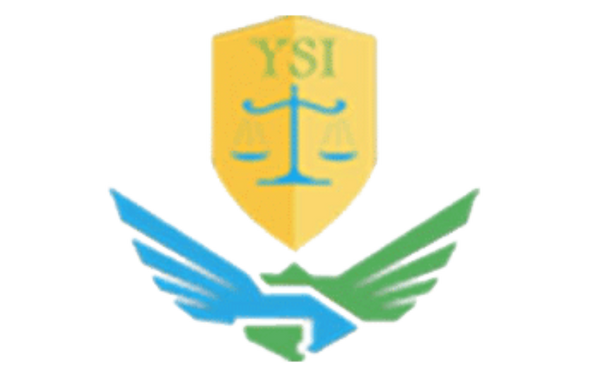
What is SMETA certification? What is SEDEX certification? How much does it cost? What are the requirements?
1. SMETA Certification
SMETA (Sedex Members Ethical Trade Audit) is a widely used social responsibility audit method, the core purpose of which is to ensure that suppliers comply with ethical trade, social responsibility and sustainable development standards in their business activities. It was developed by SEDEX (Supplier Ethical Data Exchange) as an audit tool to help global supply chain companies self-assess and prove their compliance with ethical, social and environmental responsibilities to customers.
-
The audit area <br class="container-utlnW2 wrapper-d0Cc1k undefined">includes four main aspects:
- Labor standards : Comply with the International Labor Organization (ILO) and local labor laws and regulations, including working hours, wages and benefits, prohibition of child labor and forced labor, anti-discrimination, safe working environment, etc.
- Health and Safety : Review whether the company provides safe and hygienic working conditions, including equipment safety, occupational health training, fire-fighting equipment, emergency plans, etc.
- Environmental management : Evaluate waste disposal, energy consumption, resource use, pollution control and other measures to ensure compliance with local and international environmental regulations.
- Business ethics : Pay attention to the company's anti-corruption and anti-bribery practices to ensure transparent and fair supply chain operations.
-
Nature of the audit <br class="container-utlnW2 wrapper-d0Cc1k undefined">It is not an independent certification, but is performed by a third-party auditing agency (such as TESTCOO, BV, SGS, ITS, etc.). The audit result report is shared with customers through the Sedex platform for customers to evaluate supplier compliance.
2. Sedex Certification
Sedex (Supplier Ethical Data Exchange) is a non-profit global membership platform dedicated to promoting responsible supply chain management. Through the platform, companies can manage and share social responsibility performance information (such as labor conditions, health and safety, environmental management, business ethics, etc.).
-
Essence <br class="container-utlnW2 wrapper-d0Cc1k undefined">It is not an independent certification and Sedex itself does not conduct audits. Companies need to pass audits such as SMETA and upload reports to the platform to prove social responsibility compliance to customers. The platform provides companies with standardized tools to help manage ethical risks in the supply chain, ensure compliance and maintain transparency.
-
Membership Type
- Category A members : usually brands, retailers and large customers, used to monitor their own supply chains.
-
Category B members : usually suppliers, who upload SMETA audit reports through the platform to demonstrate their social responsibility status.
Members can access and manage global supply chain audit data through the platform to promote transparency and mutual trust among business partners.
3. SMETA certification fees
Costs are affected by a number of factors, including the following:
- Company size and number of employees : The larger the factory size (production area, number of employees), the longer the audit time and the higher the cost.
- Audit scope : It is divided into 2-Pillar (two pillars, covering labor standards and health and safety) and 4-Pillar (four pillars, covering all four areas). The four-pillar audit is more comprehensive and more costly.
- Auditing agency : Different third-party agencies charge different fees (such as SGS, BV, ITS, etc.). The fee is usually between RMB 10,000 and RMB 50,000 (specific quotation is required by project) based on the difficulty of the audit and the company's request for quotation.
- Geographical factors : Audit costs vary in different countries/regions. Costs in developed countries are relatively high, and cross-border audit costs may increase.
- Other expenses : You need to consider the annual fee of the Sedex platform, which is determined by the membership category and the size of the company, usually ranging from several thousand to tens of thousands of RMB.
IV. SMETA Certification Requirements
Companies must meet the following ethical and social responsibility standards:
- Labor conditions : Comply with ILO and local labor laws to ensure reasonable working hours, limited overtime, legal wages and benefits, prohibit child labor and forced labor, and fair and non-discriminatory recruitment processes.
- Health and Safety : Provide a safe and hygienic working environment, including equipment maintenance, first aid and fire prevention measures, regular health and safety training, facilities comply with national and international safety regulations, and regular risk assessment and accident prevention.
- Environmental Management : Implement an effective environmental management system to reduce emissions of waste gas, wastewater and solid waste, save energy and water resources, comply with environmental regulations and take sustainable development measures.
- Business ethics : Develop and implement anti-bribery and anti-corruption policies, ensure supply chain transparency, and guarantee fair transactions within the company and with supply chain partners.
Companies need to prepare relevant policies and procedures (such as document management, employee handbooks, environmental policies, etc.) in advance to ensure that they can be verified during the audit.
5. Validity period of SMETA certification
The audit is usually valid for one year, during which customers can view the results through the Sedex platform. To maintain continuity, companies generally need to conduct a re-audit once a year.
- The review time and requirements are adjusted based on the results of the initial audit: if there are many compliance issues, the review frequency and scope may be increased; if performance is excellent, the review frequency may be reduced and the cycle more flexible.
Share this product

What is SMETA certification? What is SEDEX certification? How much doe
SMETA (Sedex Members Ethical Trade Audit) is a widely used social responsibility audit method. Its core purpose is to ensure that suppliers comply with ethical trade, social responsibility and sustainable development standards in their business activities.
Copy Link
Email
WhatsApp
Messenger
Facebook
Twitter
Printer
More Options
